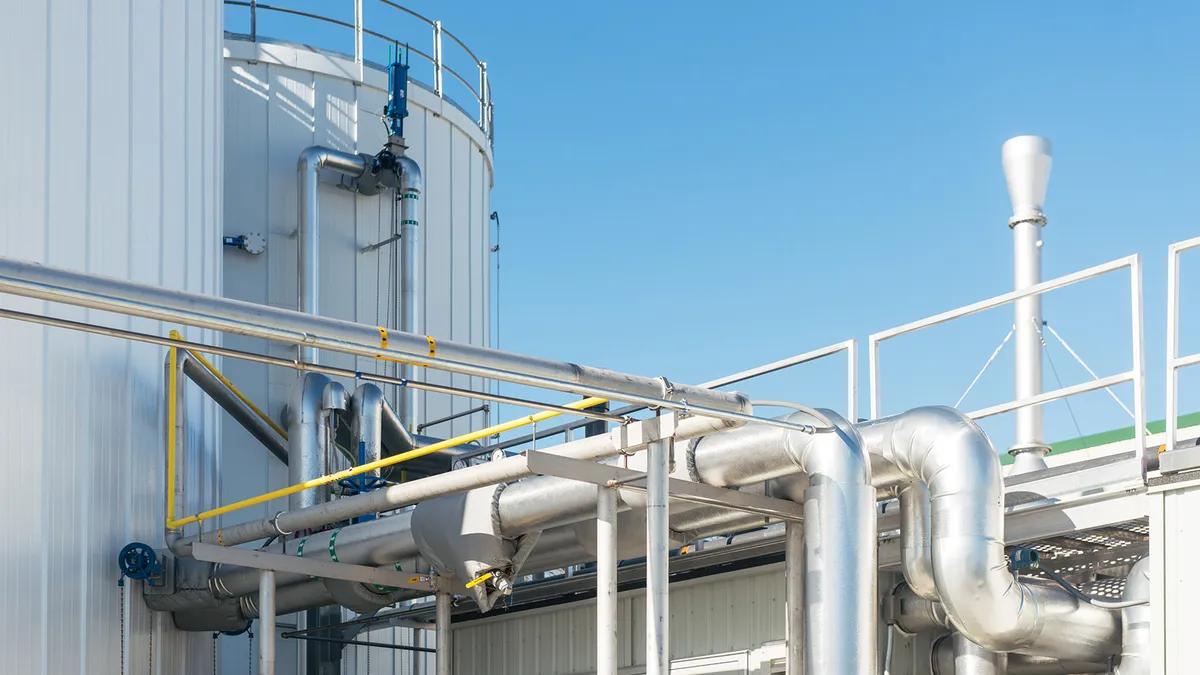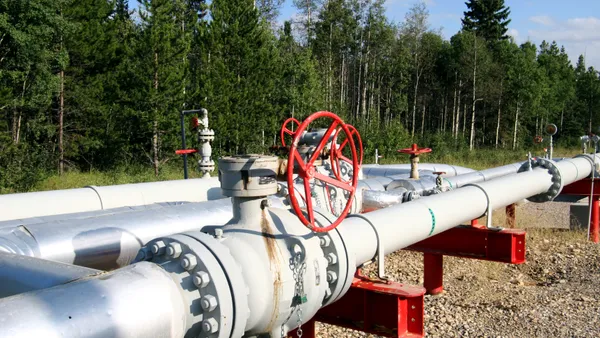Divert, a company that provides food waste reduction technology and organics recycling services, announced last week “one of the largest known RNG offtake agreements from food waste digestion in the U.S” with energy giant BP.
The 10-year agreement is worth an estimated $175 million and will involve gas from three of Divert’s upcoming anaerobic digestion facilities that are being developed in California, Pennsylvania and Washington. Both companies declined to share any details on how much gas would be purchased. Divert said its three facilities will collectively process an estimated 350,000 tons of food waste per year once fully operational.
“The climate crisis is accelerating and the need to find alternate solutions and independent energy resources to decarbonize has never been more critical,” said Ryan Begin, Divert co-founder and CEO, in a statement. “This long-term agreement with BP ensures that Divert will continue to lead the wasted food revolution.”
Massachusetts-based Divert, founded in 2007, was acquired by private equity firm Ara Partners in 2021 and received $100 million in growth equity.
Divert now has eight modular sites with depackaging capabilities to prepare material for third-party organics processing, plus two existing anaerobic digesters in California and Massachusetts that were launched in partnership with grocery chains. The company handles an estimated 232,000 tons of food per year, when including the pre-processing sites, and reports a client base of around 5,200 retail stores.
Investment in anaerobic digestion and renewable natural gas projects is in a period of significant growth, fueled by a variety of market and policy factors, with industry proponents bullish that the trend will continue.
“These developments illustrate increasing awareness from commercial-scale food producers that RNG is a promising solution for meeting their sustainability goals — in some cases for both waste management and clean energy procurement,” said Sam Lehr, the RNG Coalition’s manager of sustainability and markets policy, via email. “Sending food waste to anaerobic digesters solves an important environmental trilemma by reducing methane emissions through the improved management of organic waste, providing clean fuel, and creating a circular economy.”
While it’s increasingly common to see regional offtake agreements related to single food waste digesters, many of the sector’s multi-site agreements so far have involved portfolios of landfill gas projects or dairy digesters. Commonly cited examples of other large RNG deals include Archaea’s landfill gas agreement with FortisBC Energy, NW Natural’s landfill gas agreement with EDL Energy and Chevron’s joint venture on dairy projects with Brightmark, among others.
Like Chevron, BP has also been focused on investing in its own projects to produce RNG from dairy digesters. Such projects have become increasingly attractive as a way to capture value from renewable energy credits, while also offering an opportunity for energy companies to invest in alternatives to their core business of fossil fuels that are a sizable contributor to climate change.
The RNG from this particular deal is expected to be made available to BP’s customers. The company declined to comment on what the expected pathway would be for the gas, in terms of potential credits under the federal Renewable Fuel Standard or state Low Carbon Fuel Standard.
Divert estimates the first of its facilities will begin producing RNG for this agreement by the end of 2023.
















